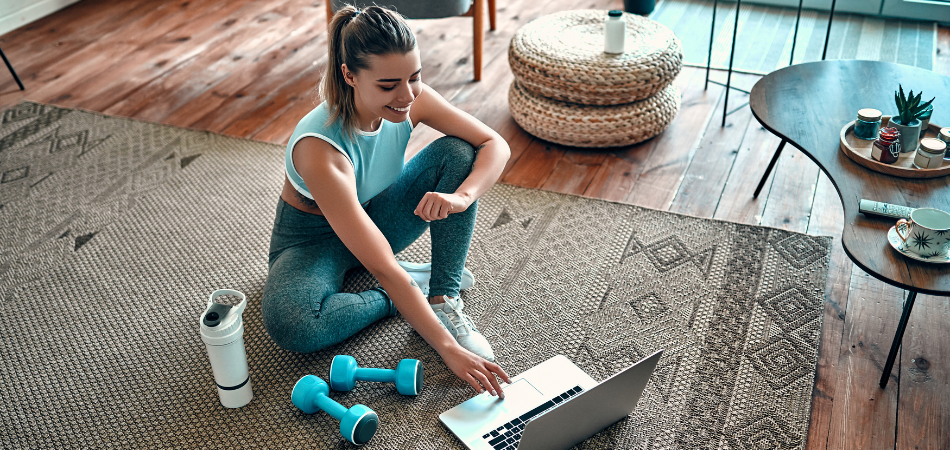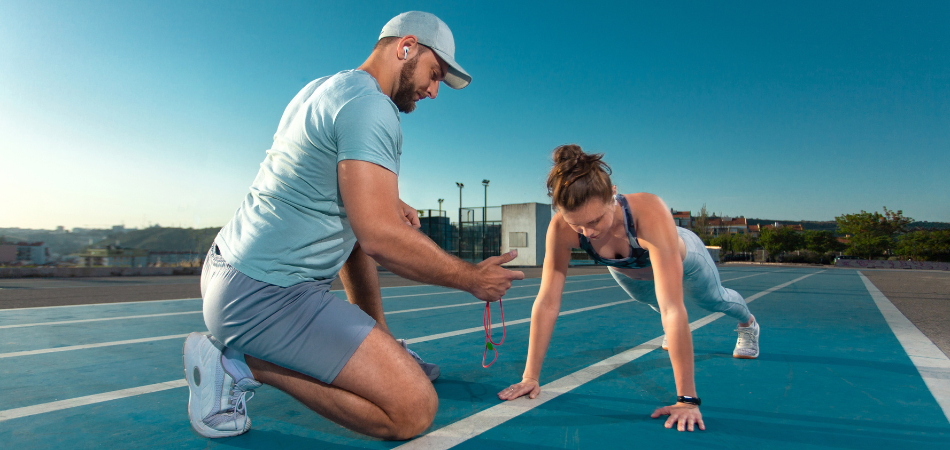When many think of physical health therapy, they might associate it with intensive weight loss programmes or perhaps even recovery after a serious injury. But did you know physical health therapy is also an integral part of addiction treatment programmes? On this page, we explore how physical health therapy intertwines with addiction programmes to provide a comprehensive recovery plan, supporting not just your mental and emotional well-being but your physical health, too.
What is physical health therapy?
Physical health therapy, often known as physical therapy, is a healthcare profession focused on evaluating, diagnosing and treating individuals with physical impairments, disabilities or pain. It involves a variety of techniques such as exercises, manual therapy, and the use of modalities such as heat, cold, and electrical stimulation.
The goal is to restore movement, improve functional abilities and enhance the quality of life. Physical therapists work with patients of all ages, helping them recover from injuries, manage chronic conditions or adapt to physical changes due to ageing or illness.
Key elements of physical health therapy
Physical therapy includes many key elements and services aimed at improving physical well-being. Each part is vital for recovery and health, from personalised exercise programmes to hands-on manual therapy and pain management.
To give you a clear and easy-to-understand overview, we’ve compiled a table highlighting these different aspects and their benefits. This way, you can better appreciate the comprehensive nature of physical therapy.
| Key Element | Description |
|---|---|
| Assessment and diagnosis | This starts with a thorough evaluation of your physical condition, including your medical history and a physical exam, sometimes with diagnostic tests, to identify any issues and create a personalised treatment plan. |
| Exercise therapy | Customised exercise programmes designed to improve strength, flexibility, endurance and overall fitness. These can include aerobic exercises and strength training. |
| Manual therapy | Hands-on techniques like massage, joint mobilisation and manipulation to reduce pain, increase mobility and enhance muscle function. |
| Education and advice | Offering information about your condition, treatment options and self-management strategies. This might include tips on posture, ergonomics and lifestyle changes to prevent further injury and promote long-term health. |
| Pain management | Techniques and interventions to relieve pain, such as heat/cold therapy, electrical stimulation, acupuncture and medication management. |
| Functional training | Activities designed to improve daily living skills and help you perform tasks related to work, sports or other activities. This can include balance training, coordination exercises and practising specific movements. |
| Rehabilitation | Focused programmes to help you recover from surgery, injury or illness. This involves progressive exercises and therapies to restore function and mobility. |
| Nutritional support | Guidance on proper nutrition to support your physical recovery and overall health, often in collaboration with a dietitian or nutritionist. |
| Preventive care | Strategies to prevent injuries and illnesses, such as fitness programmes, wellness check-ups and education on maintaining a healthy lifestyle. |
| Use of technology | Advanced tools and equipment like ultrasound, laser therapy and biofeedback to enhance treatment outcomes. |
| Holistic approaches | Complementary therapies like yoga, Pilates, mindfulness and relaxation techniques to support both physical and mental well-being. |
Why is physical health therapy used in addiction recovery?
By examining the key elements of physical health therapy and applying them to addiction recovery, it’s evident how beneficial these practices can be for a comprehensive recovery plan. Below, we highlight some key elements and explain why they’re integral to many addiction recovery programmes.
Exercise therapy
Customised exercise programmes can play a crucial role in addiction recovery by improving overall physical health and enhancing mood. Exercise releases endorphins, which are natural mood lifters, helping to alleviate depression and anxiety often experienced during recovery. It also helps rebuild physical strength and stamina, which might be compromised due to substance abuse.
Manual therapy
Hands-on massage and joint mobilisation can help reduce pain and tension while promoting relaxation and improving circulation. For individuals in recovery, manual therapy can help manage withdrawal symptoms and provide a sense of physical relief, which aids in the overall healing process.
Education and advice
Providing information about addiction, recovery processes, and self-management strategies empowers individuals to take an active role in their recovery. Education on healthy lifestyle choices and the importance of maintaining physical health can support long-term sobriety and prevent relapse.
Pain management
Techniques like heat/cold therapy, acupuncture and electrical stimulation can effectively manage pain without the use of addictive medications. This is particularly important for individuals in recovery who may be dealing with chronic pain or discomfort as a result of substance abuse. Effective pain management can improve quality of life and reduce the risk of relapse.
Functional training
Functional training focuses on improving daily living skills and helps individuals regain independence. For those in addiction recovery, this can mean relearning how to perform everyday tasks without relying on substances and improving overall coordination and strength.
Nutritional support
Proper nutrition is vital for physical recovery and overall health. Guidance from a dietitian or nutritionist can help individuals understand how to nourish their bodies and any repair damage caused by substance abuse. Good nutrition can also improve mood and immune response, which is critical during recovery.
Holistic approaches
Incorporating yoga, Pilates, mindfulness, and relaxation techniques can address both physical and mental aspects of recovery. These practices help reduce stress, improve mental clarity, and promote well-being. They also teach coping strategies and improve body awareness, which can be beneficial in managing cravings and emotional triggers.
The importance of health after rehab
Maintaining physical health therapy after rehab isn’t just beneficial during addiction treatment; it should become a part of a permanent lifestyle change. Many who overcome addiction feel a void where addiction once was, and since addictions often take over lives completely, it’s understandable why exercise and physical health therapy become important replacements.
Engaging in regular physical health therapy helps prevent relapse by providing insights from listening to your body and staying active. Activities like yoga, swimming or even daily walks can significantly improve your mood, reduce stress and enhance overall well-being. Exercise releases endorphins, natural mood lifters that help combat feelings of depression and anxiety often present in recovery.
Additionally, physical health therapy provides structure and routine, crucial during the transition from rehab to everyday life. Incorporating regular physical activity into your schedule creates positive habits that replace old, harmful ones.
Do all rehab programmes offer physical health therapy?
Not all rehab programmes offer physical health therapy. However, at UK-Rehab, we strive to connect you with those that do if you desire it. Get in touch with us today for a tailored search, or explore some of the rehab options in the UK below.
Call our admissions line 24 hours a day to get help.






